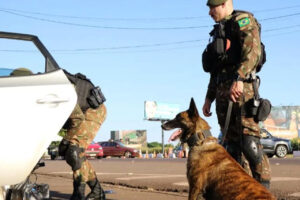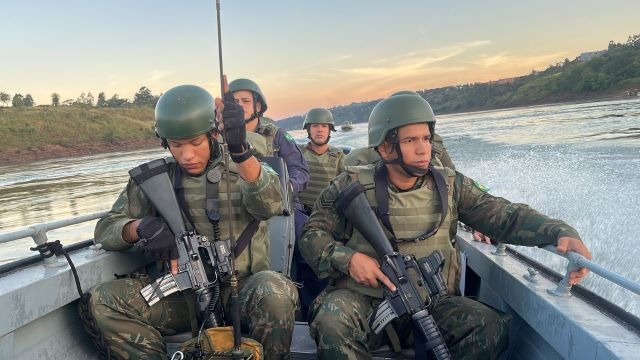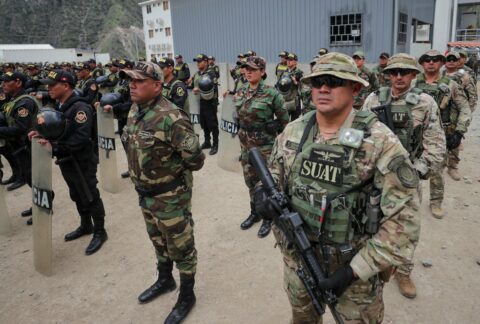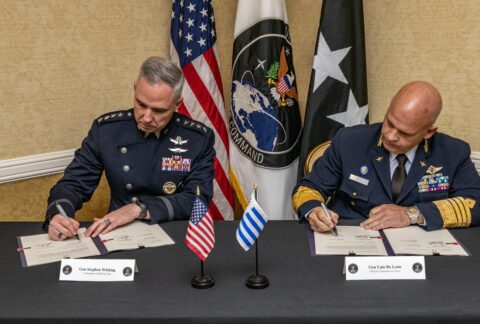Brazil carried out a series of preventive and repressive actions against cross-border and environmental crimes along the border and in the maritime area of the states of Paraná, Santa Catarina, and Rio Grande do Sul, July 1-15. The actions were part of Operation Joint Agatha South (Operação Ágata Conjunta Sul) of Brazil’s Ministry of Defense, which sought to combat crimes and intensify the presence of the Brazilian State in the region.
Operation Joint Agatha South dealt a blow of nearly $8.2 million to the finance of organized crime in the region. Authorities seized 8.6 tons of drugs, 68.3 tons of agricultural products, 12 vehicles, and eight vessels.
Some 4,000 people, including members of the Armed and Auxiliary Forces and civilians from government agencies participated in the operation. The Southern Military Command’s (CMS) Operations Coordination Center (CCOP), in Porto Alegre, Rio Grande do Sul, led the action with the participation of the Southern Joint Command.

Joint Agatha South was carried out in an unprecedented manner, simultaneously with the armies of Paraguay and Uruguay. According to Brazilian Army Colonel Francisco José Borges da Silva, deputy chief of the CMS CCOP, the same actions carried out in Brazil took place in the border region of these neighboring countries. “Land and river patrols and the establishment of roadblocks and checkpoints also took place in neighboring countries,” Col. Borges said. “In addition, the chiefs of staff of these countries visited the Brazilian control centers, and a Brazilian delegation visited Operation BASALTO in Paraguay, similar to Operation Agatha in Brazil.”
For Col. Borges, carrying out simultaneous operations in neighboring countries maximize the effects obtained on Brazil’s border, since they strengthen the fight against transnational and environmental illicit activities in the border region of these partner nations. “In addition, they increase the exchange of information and intelligence between the armed forces of the participating countries, meeting the objectives proposed in the bilateral meetings held periodically,” Col. Borges said. “They also strengthen mutual trust between the Armed Forces of Brazil and its neighboring countries, generating opportunities for combined action in future operations and increasing communication channels.”
According to Col. Borges, more than 300 vehicles, aircraft, and vessels were deployed. “The team conducted more than 17,000 people and vehicle searches, 594 collective searches, 3,700 searches of foreign persons, and 2,544 searches of foreign vehicles. There were also 97 naval inspections, 363 roadblocks and checkpoints, 185 land patrols, 14 arrests, and one air interception, in addition to 48 cyber protection actions,”Col. Borges said.
“The operation achieved all the objectives proposed by Joint Command South, with tangible results as seen by the seizures,” Col. Borges concluded.









